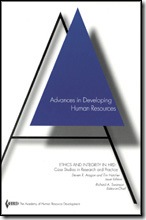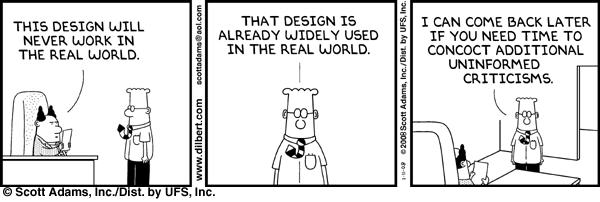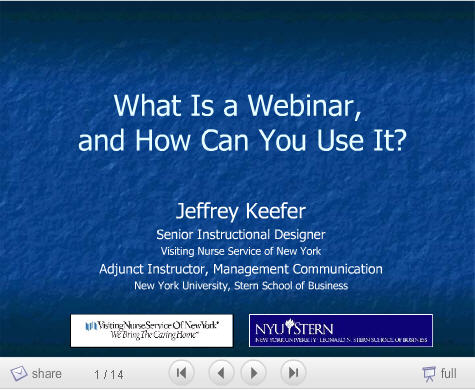Of course, that is what instructional design is all about–setting objectives to meet organizational needs.
No, we can not and should not get rid of objectives, because without them we lack some direction at all. I am only concerned when the unspoken, namely whose objectives are they, anyway? is ignored.
I have been thinking about this since I attended a session last night in the New Media Consortium’s (NMC) Symposium on Mashups. The presenter of the final session, Brian Lamb (a distant colleague whom I have met briefly twice at Northern Voice and who is a most dynamic presenter), facilitated an experience entitled “Confessions of a Mashup Un-Artist.” It was described as:
The creative side of mashups results in interesting and often popular-to-the-point-of-viral works, but at the same time, it raises questions about the nature of originality, authorship, and context. In this session, a mashup un-artist will discuss the process and products of his work, address some of the questions raised above, and discuss the relationship between remix culture and open education. Is originality overrated? Do we owe it to the intellectual environment to recycle our intellectual work? Is our existing concept of authorship still valid? Come along for the ride and contribute, collaborate, and mash up answers to these mashup questions. I attended this live in Second Life (where I am a newbie named Chartres Loire) and live in Adobe Connect (a great platform, BTW). There were video clips, music clips, avatar dancing, and various sounds. The session met the description, but nevertheless I was confused. Frustrated. Unclear as to the objectives. Grasping to “get it.” Looking for applicability. Struggling for meaning. I was that student who felt (s)he were the only one confused and not “getting it.”
I processed this a lot with some colleagues on Twitter last night, and it still seemed that I was the only one (of those who replied to me) who did not “get it.” Feeling completely isolated after this learning experience, I again started to think about learning objectives. Were Brian’s objectives the same as mine? More likely than not, the answer is no. How could they be–we did not discuss them (which is normal in most learning and presentation settings). I think I did not “get the session” for the simple reason that my objectives were not met. What were they? My objectives for the session were:
- understand what a mashup un-artist is
- apply this knowledge to my practice
After the session and after the Twitter discussion, I am still unclear as to what Brian was trying to demonstrate and I am still not able to figure out how to apply it. At least many of my colleagues seemed to respond positively and appreciate it.
While writing helps me to process my thinking (the entire purpose for my blog itself), I could only make sense of the experience when I finally realized my objectives were not met. This does not mean that other people had the same or different experiences, but I believe it does demonstrate how acknowledging individual (and thus different) learning objectives is so important in the learning process.
I think I still need to process this a little more, but want to share where I am right now.



